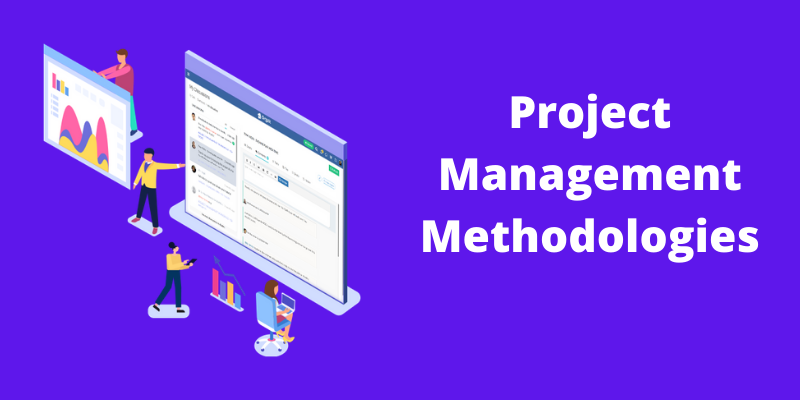
Choosing The Right Project Management Methodology For Your Team
In the dynamic world of project management, selecting the right methodology is akin to choosing the right tool for a specific job. The diverse nature of projects demands a thoughtful approach to project management methodologies, considering factors such as project size, complexity, team dynamics, and the industry landscape. Let’s navigate the project management landscape and explore various methodologies to help you make an informed decision for your team.
1. Waterfall Methodology:
Characteristics:
- Sequential and linear process.
- Phases include requirements, design, implementation, testing, deployment, and maintenance.
- Progress moves in one direction—downward through the phases.
Ideal for:
- Well-defined projects with stable requirements.
- Projects where changes are costly or undesirable.
2. Agile Methodology:
Characteristics:
- Iterative and incremental development.
- Embraces change throughout the project lifecycle.
- Focus on collaboration, customer feedback, and small, rapid releases.
Ideal for:
- Projects with evolving or unclear requirements.
- Dynamic and fast-paced environments.
- Teams aiming for continuous improvement.
3. Scrum Framework:
Characteristics:
- Iterative and time-boxed approach.
- Roles include Scrum Master, Product Owner, and Development Team.
- Regular ceremonies like Sprint Planning, Daily Standups, Sprint Review, and Sprint Retrospective.
Ideal for:
- Cross-functional teams working on complex projects.
- Projects requiring adaptability and frequent feedback.
4. Kanban Methodology:
Characteristics:
- Visualizes the workflow on a Kanban board.
- Focus on continuous delivery, limiting work in progress (WIP), and optimizing flow.
- No fixed iterations—work is pulled as capacity allows.
Ideal for:
- Continuous and steady workflows.
- Service-oriented projects with varying priorities.
5. Lean Project Management:
Characteristics:
- Rooted in manufacturing principles from Lean Production.
- Aims to eliminate waste, optimize efficiency, and deliver value.
- Continuous improvement through feedback and adaptation.
Ideal for:
- Projects emphasizing efficiency and waste reduction.
- Teams focused on delivering maximum value.
6. Hybrid Methodology:
Characteristics:
- Combines elements of different methodologies.
- Tailored to meet the specific needs of a project.
- Enables flexibility and customization.
Ideal for:
- Complex projects with diverse requirements.
- Teams seeking a balance between structure and adaptability.
7. Critical Path Method (CPM):
Characteristics:
- Emphasizes identifying critical and non-critical tasks.
- Utilizes a timeline to schedule and visualize dependencies.
- Determines the longest path for project completion.
Ideal for:
- Projects with well-defined tasks and dependencies.
- Projects where time is a critical factor.
8. PRINCE2 (Projects IN Controlled Environments):
Characteristics:
- Process-driven and scalable methodology.
- Defines roles, responsibilities, and processes clearly.
- Emphasizes flexibility and adaptability.
Ideal for:
- Large-scale projects with a formal structure.
- Projects requiring a well-defined framework.
9. DevOps Practices:
Characteristics:
- Integrates development and operations teams.
- Aims for continuous delivery, automation, and collaboration.
- Embraces a culture of shared responsibility.
Ideal for:
- Projects requiring seamless collaboration between development and operations.
- Continuous integration and continuous delivery (CI/CD) pipelines.
10. Extreme Programming (XP):
Characteristics:
- Agile methodology with a focus on software engineering best practices.
- Emphasizes pair programming, continuous testing, and frequent releases.
- Values simplicity, communication, and feedback.
Ideal for:
- Small to medium-sized teams.
- Projects with a focus on high-quality code and rapid iteration.
Conclusion:
Choosing the right project management methodology involves a thoughtful analysis of your project’s unique requirements, team structure, and organizational goals. It’s often beneficial to tailor a methodology or adopt a hybrid approach that aligns with your specific context. Remember, flexibility and continuous improvement are key elements of successful project management. As you embark on your project management journey, consider experimenting, learning, and adapting to find the methodology that best suits your team’s needs and fosters project success.
